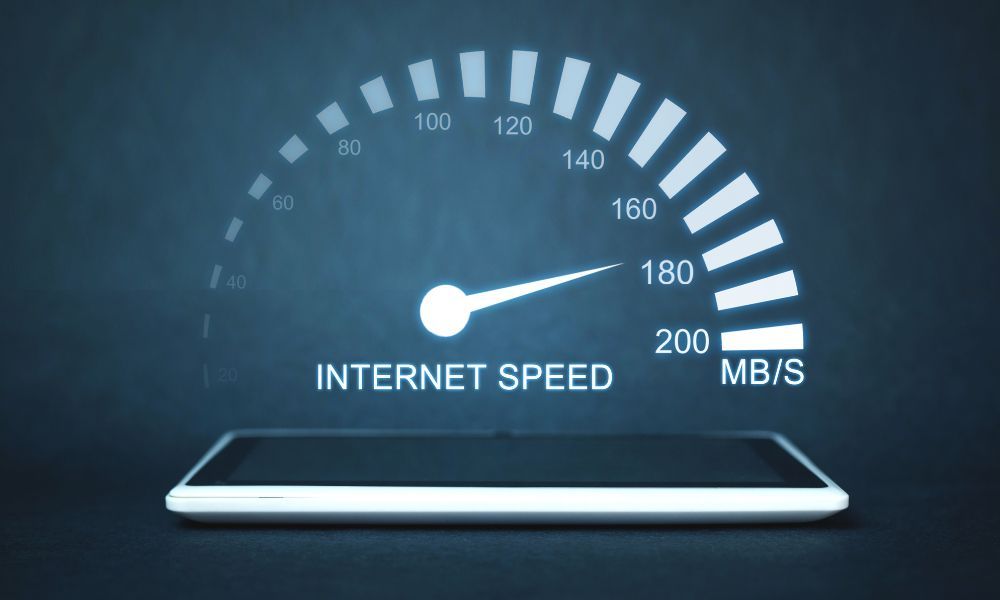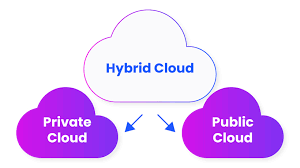The rise of digital workplaces, remote collaboration tools, and real-time customer service platforms has made highspeed business internet a foundational requirement for modern enterprises. Whether it’s a small startup running on cloud tools or a multinational firm hosting data centers, efficient internet connectivity is crucial for productivity and competitiveness.
Businesses typically choose from technologies such as fiber-optic, cable, satellite, or wireless broadband depending on location, bandwidth requirements, and infrastructure. Fiber-optic connections are widely recognized for offering the highest speeds and reliability, making them the preferred choice in major cities and industrial zones.
Why Highspeed Business Internet Matters
In today’s data-driven economy, highspeed business internet is no longer a luxury it’s a necessity. It affects every department in a company, from IT operations to customer service. A stable and fast connection ensures that teams can collaborate without interruptions, access cloud-based tools, and deliver seamless online services.
Key reasons why it matters today include:
-
Efficiency and Productivity: High-speed connections minimize downtime and accelerate file sharing, data transfers, and communication.
-
Scalability: Businesses can easily upgrade bandwidth as their operations grow.
-
Cybersecurity: Modern business internet packages often include enhanced security features such as dedicated IPs and encrypted connections.
-
Customer Experience: Reliable internet ensures consistent performance for customer-facing applications such as websites, chat systems, and e-commerce platforms.
According to Statista (2024), over 90% of medium and large businesses depend on highspeed internet for daily operations, and more than 65% of SMEs report that slow connections negatively affect productivity.
Recent Updates and Global Trends
The past year has seen notable advances in business internet infrastructure and technology. The global shift toward remote and hybrid work models has accelerated the demand for faster and more stable connections.
Key trends observed in 2024–2025 include:
| Trend | Description |
|---|---|
| Fiber Expansion | Major telecom providers continue expanding fiber networks across urban and rural areas. In India, initiatives under BharatNet Phase III (2024) are enhancing rural broadband accessibility. |
| 5G Integration | Businesses are increasingly adopting 5G connections as backup or mobile broadband solutions. |
| Edge Computing Growth | Companies are setting up local data processing centers to reduce latency. |
| Sustainability Efforts | ISPs are optimizing energy efficiency in data centers and network operations. |
| Cybersecurity Focus | Enhanced encryption and endpoint protection are becoming standard features for business networks. |
In 2025, many countries, including the United States, India, and parts of Europe, have announced programs to accelerate fiber and 5G adoption, particularly to support small businesses transitioning to digital models.
Laws, Regulations, and Government Programs
Business internet infrastructure and usage are regulated by national and international laws to ensure fair access, data protection, and security compliance.
-
India: The Digital India Programme and BharatNet Project play a major role in expanding fiber connectivity nationwide. The Telecom Regulatory Authority of India (TRAI) oversees fair competition and ensures transparency in bandwidth allocation.
-
United States: The Federal Communications Commission (FCC) regulates broadband deployment and enforces the Open Internet Order, which ensures net neutrality principles.
-
European Union: The Digital Decade 2030 Policy emphasizes high-speed gigabit connectivity for all households and businesses by 2030.
-
Data Protection: Businesses must comply with frameworks such as GDPR (in the EU) or DPDP Act (2023) in India to ensure responsible handling of user data.
Government incentives, especially for rural broadband expansion, aim to close connectivity gaps and help small enterprises compete digitally. Many grants and tax benefits are provided for companies upgrading to highspeed connections in underserved areas.
Tools, Platforms, and Technical Resources
Businesses have access to several digital tools and resources that help manage, test, and optimize their internet connections. These tools assist with bandwidth monitoring, network diagnostics, speed evaluation, and cybersecurity protection.
Popular tools and resources include:
| Tool | Function | Type |
|---|---|---|
| Ookla Speedtest | Tests upload and download speeds | Web/App |
| Fast.com | Provides quick speed checks powered by Netflix | Web |
| GlassWire | Monitors real-time bandwidth usage | Software |
| PingPlotter | Diagnoses network performance and latency issues | Software |
| Cloudflare Radar | Tracks global internet traffic and security patterns | Website |
| Cisco Meraki Dashboard | Manages enterprise networks remotely | Cloud Platform |
Helpful resources for business owners:
-
TRAI Broadband Portal (India): Provides broadband performance reports and ISP comparisons.
-
FCC Broadband Map (USA): Displays available business internet providers by location.
-
Speedtest Intelligence Reports (Global): Offers market insights on connectivity trends.
-
Government ICT Portals: Useful for information on digital infrastructure programs.
These tools and portals help organizations make data-driven decisions when evaluating or maintaining internet connections.
Frequently Asked Questions
1. What is the difference between business and residential internet?
Business internet offers higher speeds, better uptime guarantees, symmetrical upload/download speeds, and dedicated customer support. Residential internet is optimized for personal use and may not handle heavy commercial workloads.
2. How fast should business internet be?
It depends on the company’s size and activities. Small offices may function well with 100 Mbps, while data-intensive businesses (like design studios or data analytics firms) may require 500 Mbps to 1 Gbps or more.
3. Is fiber-optic internet better than wireless broadband for businesses?
Yes, fiber-optic connections provide higher reliability, lower latency, and consistent speeds. Wireless broadband is useful as a secondary or backup connection.
4. What factors affect internet performance in offices?
Network congestion, outdated routers, shared bandwidth, and physical distance from ISP nodes can reduce performance. Regular speed tests and hardware upgrades help maintain quality.
5. How can a business ensure secure internet usage?
Use firewalls, encrypted VPNs, and endpoint protection tools. Also, limit access permissions and monitor network traffic regularly.
Conclusion
Highspeed business internet is the foundation of modern digital operations. From cloud computing and cybersecurity to customer communication and data analysis, it powers nearly every business activity. The rapid expansion of fiber and 5G networks globally continues to close digital divides and improve access for organizations of all sizes.
Businesses that invest in reliable, scalable, and secure internet infrastructure position themselves for future growth. As digital transformation accelerates across industries, understanding the fundamentals, policies, and tools surrounding business internet is essential for staying competitive in the global marketplace.
Reliable connectivity isn’t just a technical asset it’s a strategic advantage that enables innovation, collaboration, and resilience in an increasingly connected world.







